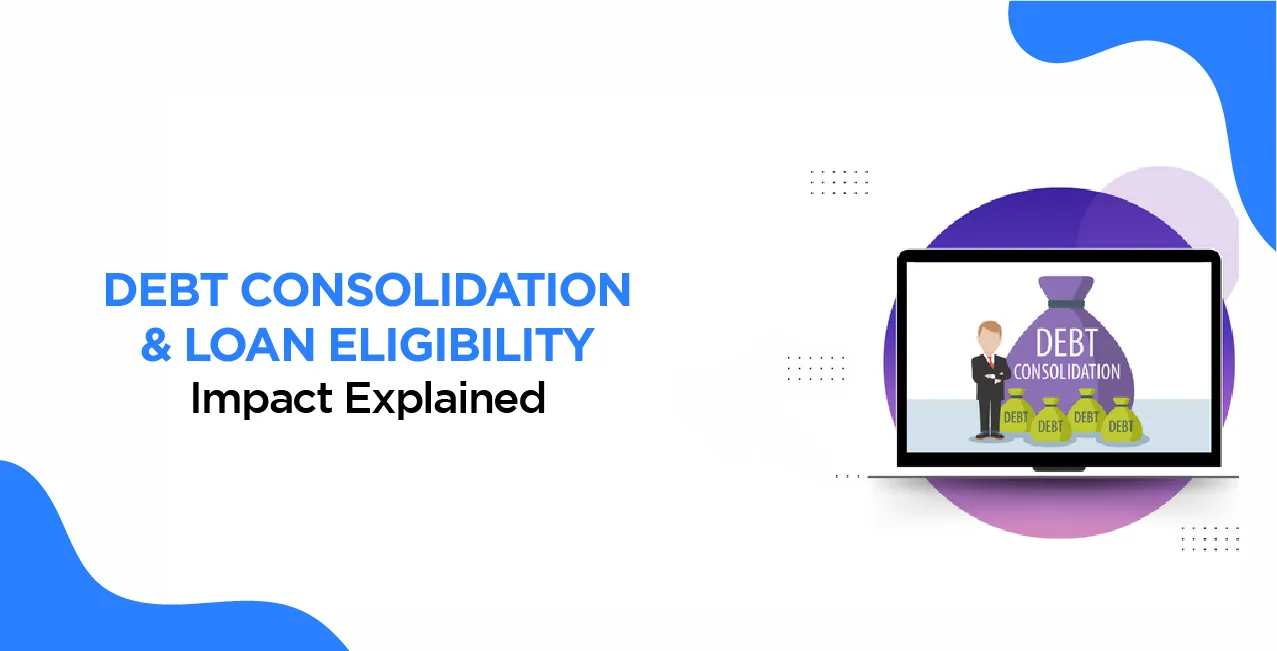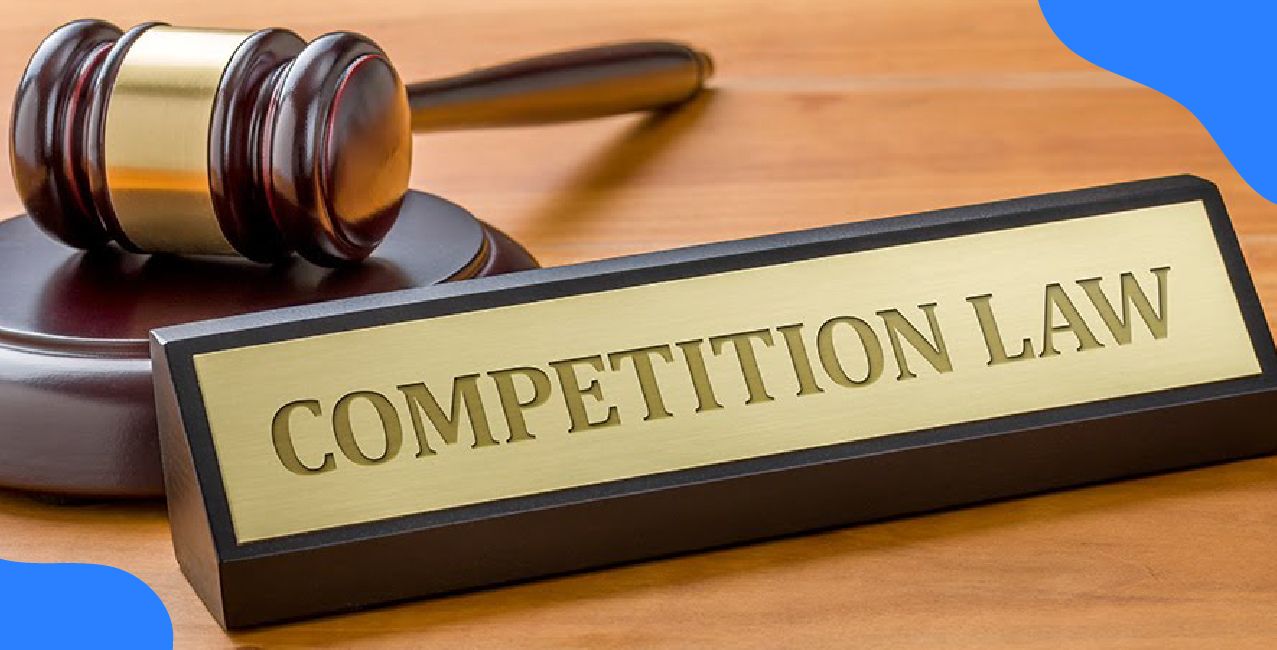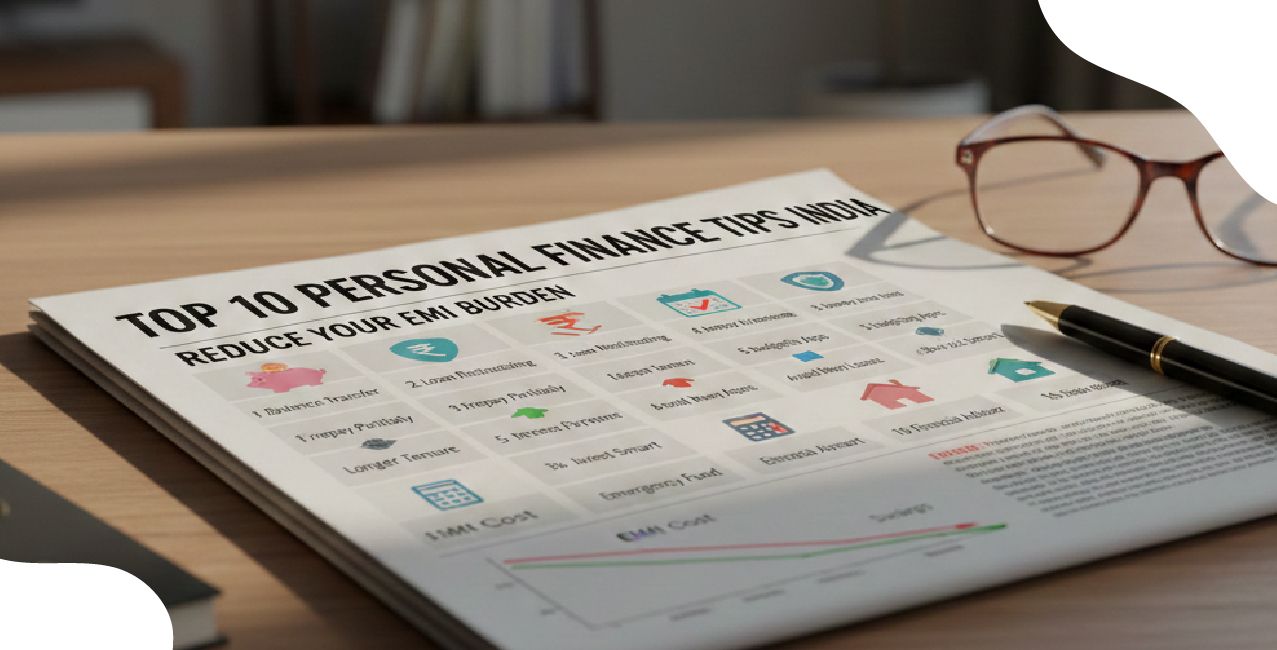Debt Consolidation & Loan Eligibility – Impact Explained

Check Your Loan Eligibility Now
By continuing, you agree to LoansJagat's Credit Report Terms of Use, Terms and Conditions, Privacy Policy, and authorize contact via Call, SMS, Email, or WhatsApp
In recent years, many Indians have turned to debt consolidation to manage multiple loans more effectively. Borrowers aim for simplified payments and lower interest rates by combining various debts into a single loan.
However, it's essential to understand how this strategy can influence your future loan eligibility. According to a report by Business Standard, debt consolidation loans in India typically carry interest rates ranging from 12% to 14%, depending on factors like the borrower's credit score and repayment tenure.
While consolidating debts can streamline your finances, it's crucial to consider its impact on your credit profile and future borrowing capacity.
Does Debt Consolidation Improve or Hurt Your Credit Score?
Debt consolidation can impact your credit score differently, depending on how well you manage your finances after merging your loans.
Initially, you may notice a slight dip in your score, but over time, responsible repayment can improve it. Understanding the short-term and long-term effects helps in making informed financial decisions.
Short-Term Effects
- Temporary dip in credit score: When you apply for a debt consolidation loan, lenders conduct a hard inquiry, which may lower your credit score by 5-10 points. However, this is temporary and recovers over time.
- Change in credit utilisation ratio and average account age: Closing multiple credit accounts after consolidation may impact the credit utilisation ratio, which is the percentage of your credit limit used. If you close old accounts, it also reduces your credit history length, which may lower your score slightly.
Read More – Your Credit Score Too Low for Debt Consolidation?
Long-Term Benefits
- On-time payments improve credit history: A consolidated loan simplifies repayment, making it easier to pay EMIs on time, positively affecting your credit history.
- Lower debt-to-income (DTI) ratio enhances creditworthiness: A lower DTI ratio (monthly debt divided by income) signals to lenders that you manage debt well. For example, if your monthly income is ₹50,000 and your debt payments drop from ₹20,000 to ₹15,000 after consolidation, your DTI improves, making future loans easier to get.
Impact on Your Future Loan Eligibility
Debt consolidation affects how lenders view your financial stability when you apply for loans in the future. While it can make your financial profile stronger, improper management can lead to difficulties in securing new credit. Here’s how it impacts different types of loans:
1. Personal Loans & Credit Cards
Lenders check your debt-to-income (DTI) ratio before approving new credit. If you consolidate your debt but continue to take new loans or max out your credit cards, your DTI remains high, making lenders hesitant to approve additional credit.
Example: If your total income is ₹1,00,000 and your total debt repayments after consolidation remain at ₹50,000, lenders may see you as high-risk and deny new loans.
2. Auto Loans
Consolidated debt may affect your borrowing power for a car loan. If your credit score dips after consolidation, lenders may charge higher interest rates. However, if you consistently pay your EMIs on time, your score improves, and you may get a lower interest rate when applying for an auto loan.
Example: A person with a 750 credit score may get a car loan at 8% interest, while someone whose score dropped to 680 after consolidation might face a 12% interest rate.
3. Home Loans & Mortgages
A lower DTI ratio can improve mortgage eligibility. Banks prefer applicants with a DTI below 40%. If consolidation helps reduce your debt obligations, it increases the chances of getting a home loan with favorable terms.
Comparison Table: Debt Consolidation’s Impact on Home Loan Eligibility
Factor | Before Consolidation | After Consolidation |
Monthly EMI Payment | ₹35,000 | ₹30,000 |
Income | ₹1,00,000 | ₹1,00,000 |
DTI Ratio | 35% | 30% |
Loan Approval Odds | Moderate Risk | High Approval Odds |
4. Business Loans
For self-employed individuals, banks consider creditworthiness and existing liabilities before approving a business loan. If debt consolidation improves your repayment history and reduces outstanding credit card dues, lenders may see you as more reliable.
Example: A business owner with a ₹2,00,000 debt burden and a DTI of 60% may struggle to secure a business loan. But if consolidation lowers their DTI to 45%, their chances improve.
5. Importance of Maintaining a Positive Payment History After Consolidation
The key to making debt consolidation work in your favour is consistent, on-time payments. A missed EMI can harm your credit score, reducing future loan eligibility.
Example: Rahul took a ₹8,00,000 consolidation loan for all his credit card debts. Initially, his credit score dropped from 720 to 690 due to a hard inquiry. But after 12 months of regular payments, his score improved to 750, making him eligible for a lower interest rate home loan.
Factors That Determine Whether You Qualify for Future Loans
Debt consolidation can simplify repayments, but how does it affect your ability to secure loans in the future? Lenders assess several factors before approving new credit, including how well you’ve managed your finances post-consolidation.
While consolidation can improve your credit profile, missteps—like missing payments or taking on new debt—can make future borrowing harder. Below are key factors lenders consider before approving loans.
1. Credit Score: Improvements vs. Negative Effects of Consolidation
Lenders use your credit score to gauge your risk level. Debt consolidation can impact your score in multiple ways:
- Short-term dip: A hard inquiry for a new loan can lower your score temporarily.
- Improvement over time: Paying consolidated debt on time boosts your credit score.
- Credit utilisation ratio: If you close old accounts, your available credit reduces, which may impact your score negatively.
Example: If your score was 720 before consolidation, a hard inquiry could drop it to 700. However, making consistent payments can push it above 750 within a year.
2. Stability of Income and Employment History
Lenders prefer borrowers with stable income and job history. A steady job signals that you can manage future loan payments. If you consolidate debt but switch jobs frequently or have irregular income, lenders might hesitate to approve a loan.
Key Considerations for Lenders:
Factor | Favorable for Loan Approval | Risky for Loan Approval |
Income Level | ₹5,00,000+ per year with steady growth | Fluctuating income with gaps |
Job Stability | Same company for 2+ years | Frequent job changes |
Loan Repayment | Consistent EMI payments | Missed or delayed payments |
3. Length of Credit History and Active Accounts
Credit history length plays a major role in loan approval. Closing older accounts after consolidation can shorten your credit history, making you appear riskier.
- Keep older accounts open to maintain credit history.
- Avoid applying for multiple loans in a short time, as too many inquiries lower your score.
Example: A person with a 10-year-old credit card has a stronger profile than someone with a 2-year-old card, even if their scores are similar.
4. Debt-to-Income Ratio (DTI)
DTI measures your total debt compared to your income. A lower ratio means better loan approval chances.
- Ideal DTI for loans: Below 30%.
- Risky DTI: Above 40%, as lenders may doubt your repayment ability.
Example: If your income is ₹10,00,000 per year and your total debt is ₹3,00,000, your DTI is 30%, which is favorable.
5. Overall Financial Behavior Post-Consolidation
Lenders assess how you handle money after consolidation:
- Do you avoid unnecessary spending?
- Are you repaying on time?
- Do you apply for multiple loans frequently?
A well-managed financial profile boosts approval chances, while reckless spending or missed payments hurt your credibility.
Also Read - Don’t Risk Your Financial Future
How to Consolidate Debt Without Hurting Loan Prospects
Consolidating debt can be beneficial if done correctly. However, making poor financial decisions during or after consolidation can impact your ability to secure future loans. Here’s how to consolidate wisely without harming your creditworthiness.
1. Choosing the Right Type of Consolidation for Your Financial Goals
Debt consolidation comes in various forms—personal loans, balance transfers, or home equity loans. Picking the right one depends on your income, interest rates, and repayment ability.
Comparison of Debt Consolidation Options
Type of Consolidation | Best For | Risk Factors |
Personal Loan | High-interest credit card debt | High processing fees |
Balance Transfer Credit Card | Short-term debts | High interest if not repaid in time |
Home Equity Loan | Large debts with home collateral | Risk of losing property |
2. Avoiding New Debt While Repaying the Consolidated Loan
Many people consolidate loans but continue spending on credit, leading to more debt.
- Set a strict budget to avoid unnecessary spending.
- Use debit cards instead of credit to control expenses.
- Keep credit card balances low to maintain a healthy credit score.
Example: Rahul consolidated ₹3,00,000 of credit card debt. However, he kept using his cards and accumulated ₹1,50,000 more in six months. This made future loan approvals difficult.
3. Paying More Than the Minimum to Reduce Outstanding Balances Quickly
Paying just the minimum amount extends your repayment period and increases interest costs.
- Increase EMI payments when possible.
- Make extra lump sum payments whenever you receive a bonus or tax refund.
Example: If you owe ₹1,00,000 at 12% interest and only pay the minimum EMI, you’ll pay ₹40,000 extra in interest over five years. Paying ₹5,000 extra per month can save you ₹20,000 in interest.
4. Monitoring Credit Reports and Keeping Older Credit Lines Open
Check your credit report regularly to spot errors and ensure consolidation is helping, not hurting, your profile.
- Request free credit reports from CIBIL or Experian.
- Keep old credit cards open even if you don’t use them to maintain a long credit history.
Example: If an old account contributes 5 years to your credit history and you close it, your total credit history reduces, potentially lowering your credit score.
Conclusion
Debt consolidation can be a smart financial move if managed correctly. It helps simplify payments, lower interest rates, and improve long-term creditworthiness. However, it also comes with risks—such as a temporary drop in credit score and the temptation to accumulate new debt.
To ensure a positive impact on future loan eligibility, it’s essential to choose the right consolidation method, make consistent payments, monitor your credit report, and maintain financial discipline. When used wisely, debt consolidation not only reduces financial stress but also strengthens your borrowing power for future loans.
FAQs
1. Does debt consolidation hurt my credit score permanently?
No, the drop in credit score is usually temporary. Initially, a hard inquiry can lower your score by a few points, but consistent repayments and lower debt-to-income ratio can improve your credit score over time.
2. Can I apply for a loan immediately after debt consolidation?
It is recommended to wait at least 6-12 months before applying for new credit. This allows time to rebuild your credit score and show lenders that you can manage your finances responsibly.
3. Will closing old credit cards after consolidation improve my credit score?
No, closing old credit cards may reduce your credit history length, which can lower your credit score. Instead, keep older accounts open and use them occasionally to maintain a strong credit profile.
4. How can I lower my debt-to-income (DTI) ratio after consolidation?
You can lower your DTI ratio by paying off more of your debt, increasing your income, and avoiding new credit until your financial situation improves. Lenders prefer borrowers with a DTI below 30%.
5. Is debt consolidation a good option for everyone?
Debt consolidation is beneficial for those struggling with multiple high-interest loans. However, it may not be suitable for people with unstable income, bad spending habits, or those who are already close to their credit limit.
About the author

LoansJagat Team
Contributor‘Simplify Finance for Everyone.’ This is the common goal of our team, as we try to explain any topic with relatable examples. From personal to business finance, managing EMIs to becoming debt-free, we do extensive research on each and every parameter, so you don’t have to. Scroll up and have a look at what 15+ years of experience in the BFSI sector looks like.
Subscribe Now
Related Blog Post
Recent Blogs
All Topics
Contents
Quick Apply Loan
Consolidate your debts into one easy EMI.
Takes less than 2 minutes. No paperwork.
10 Lakhs+
Trusted Customers
2000 Cr+
Loans Disbursed
4.7/5
Google Reviews
20+
Banks & NBFCs Offers
Other services mentioned in this article








